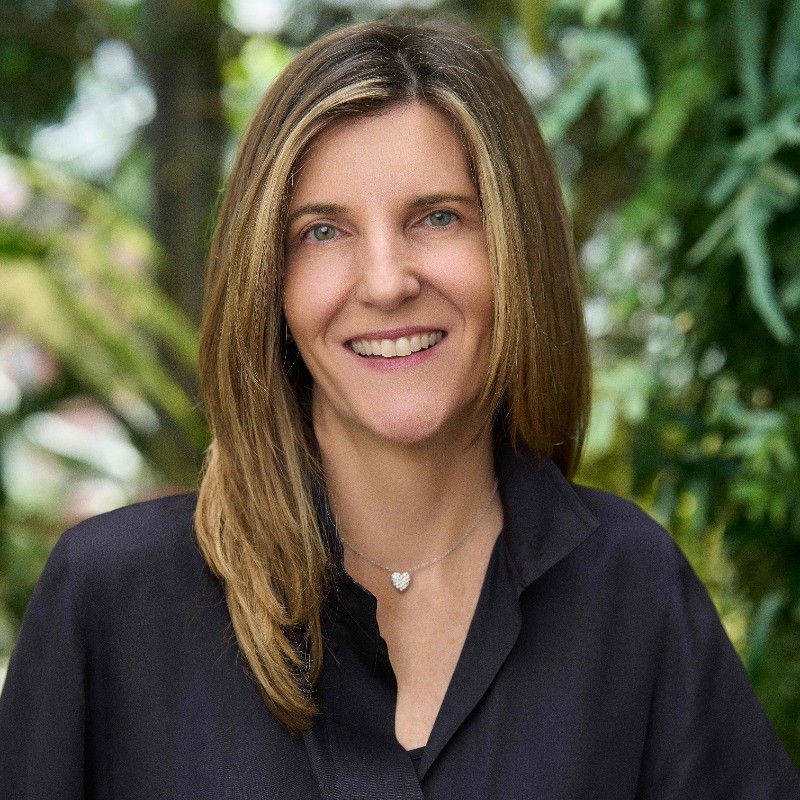From Tech Executive to Outdoor Enthusiast: Liz Hamren’s New Journey as AllTrails CEO
Elizabeth “Liz” Hamren has embarked on an exciting new chapter in her career, taking the helm as CEO of AllTrails, a platform dedicated to connecting people with outdoor experiences through comprehensive trail and national park information. Her move represents a fascinating intersection between technology and nature, something that has been central to her professional philosophy. “Throughout my career, I’ve been inspired by the power of technology to make people’s lives better. The benefits of time outside are universal, and AllTrails is unique in its ability to connect the two, helping people find joy and fulfillment by exploring the outdoors,” Hamren explained in a heartfelt LinkedIn announcement. This Seattle-based executive brings impressive credentials to her new role, having previously served as CEO of Ring, the home security company acquired by Amazon in 2018 for approximately $1 billion. Her leadership journey also includes nearly a decade at Microsoft across two separate tenures, where she notably led Xbox product and engineering teams, demonstrating her versatility across different technology sectors. Before joining Ring, where she succeeded founder Jamie Siminoff, Hamren served as chief operating officer for Discord, further establishing her reputation as a leader who understands how technology can enhance human connection.
In another significant career transition, Adam Selipsky, who previously led Amazon Web Services as CEO, has joined investment firm KKR as a senior technology and AI strategy advisor. This move signals Selipsky’s continued influence in the tech world, albeit from a different angle. He describes his new role as working closely with KKR leadership “on strategy, capital allocation, and governance, with a focus on the convergence of compute, data centers, fiber, and energy required to scale AI globally” while also supporting portfolio companies. This position leverages KKR’s substantial investments in digital infrastructure—reportedly $42 billion across 23 investments—plus an additional $20 billion backing ventures in power and renewables. Selipsky’s career has been marked by strategic movements between major tech players; he initially joined AWS in 2005 before departing after 11 years to become CEO of Seattle-based Tableau Software. After leading Tableau for more than five years, he made a notable return to AWS as CEO of the Amazon cloud unit, only to depart again last year. His expertise continues to be sought after, evidenced by his July appointment to the board of directors for Circle Internet Group, an international financial technology company.
The technology leadership landscape continues to evolve with Florin Rotar stepping into the role of executive vice president and group chief technology officer for Atos, a France-based cloud and information technology company. After an impressive 25-year career at the Seattle-area IT services and consulting firm Avanade, Rotar expressed that he “sought a challenge defined by profound impact and the opportunity to drive significant change” alongside talented colleagues and “world-class leaders.” His belief that he has found that mission at Atos speaks to the compelling nature of his new position. Rotar’s history with Avanade is notable—he joined as its first employee in Europe and held several pivotal roles including chief AI officer and chief technologist. Under his guidance, Avanade provided various digital, cloud, and AI-related services across the Microsoft ecosystem, building a reputation for excellence in technological innovation and client service.
The world of AI and machine learning infrastructure has gained a new leader in Harshitha Amit, who has taken on the role of director of engineering for AI and machine learning infrastructure at cloud company CoreWeave. Amit frames this transition powerfully: “After a decade building AI/ML infrastructure at leading companies, I’m now at the heart of AI innovation — where the infrastructure itself is the product.” Her background includes launching HA Arts this spring, a Seattle-based venture that blends AI and human artistry to produce commissioned artwork. Previously, she served as head of engineering for the digital payment platform Stripe and spent 12 years at Microsoft working on machine learning efforts within Azure. Her move comes at a time of change for CoreWeave, as Chetan Kapoor recently announced his departure as the company’s chief product officer, suggesting a potential reshaping of the organization’s leadership structure and strategic direction.
The University of Washington’s Institute for Protein Design has strengthened its leadership team with two key appointments aimed at enhancing its scientific and administrative capabilities. Jenny Cronin has joined as director of translational research, where she will help scientists commercialize their discoveries—bridging the crucial gap between laboratory breakthroughs and market applications. Her background as a venture partner at Pack Ventures and the AI2 Incubator, plus her experience as a product manager at NanoString, positions her perfectly for this translational role. Complementing Cronin’s appointment, Roseanne Hampton Reich has taken on the position of assistant director of administration at IPD. Reich brings valuable experience from previous leadership roles at lululemon, where she managed technology business operations, as well as positions at the UW’s Division of Nephrology, Seattle Children’s, and Fred Hutchinson Cancer Center—experience that will be instrumental in strengthening the institute’s administrative foundation.
The energy and climate sector has seen movement as well, with Amy Harder taking on the role of national energy correspondent for Axios after nearly four years leading Cipher, a climate change publication funded by Bill Gates’ Breakthrough Energy. The Seattle-based journalist’s return to Axios, where she previously worked in Washington, D.C., follows Cipher’s winding down of operations in July. Her background includes reporting on energy for the Wall Street Journal, giving her deep expertise in this critical field. In a separate development affecting the biotech industry, Mary Agnes “Maggie” Wilderotter has resigned from the board of directors for Sana Biotechnology, a Seattle-based cell and gene therapy company. Wilderotter’s departure marks a change for the company’s governance, following a distinguished career that included CEO roles at Grand Reserve Inn, Wink Communications, and Frontier Communications, as well as a senior vice president position of global strategy at Microsoft in the early 2000s—demonstrating once again the interconnected nature of Seattle’s technology leadership community.


